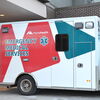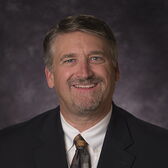Processing Your Payment
Please do not leave this page until complete. This can take a few moments.
- News
-
Editions
-
- Lists
-
Viewpoints
-
Our Events
-
Event Info
- Business Leaders of the Year Reception 2025
- Women's Leadership Forum 2025
- On the Road with Mainebiz in Bethel
- Health Care Forum 2025
- On The Road with Mainebiz in Greenville
- On The Road with Mainebiz in Waterville
- Small Business Forum 2025
- Outstanding Women in Business Reception 2025
- On The Road with Mainebiz in Bath
- 60 Ideas in 60 Minutes Portland 2025
- 40 Under 40 Awards Reception 2025
- On The Road with Mainebiz in Lewiston / Auburn
- 60 Ideas in 60 Minutes Bangor 2025
Award Honorees
- 2025 Business Leaders of the Year
- 2024 Women to Watch Honorees
- 2024 Business Leaders of the Year
- 2023 NextUp: 40 Under 40 Honorees
- 2023 Women to Watch Honorees
- 2023 Business Leaders of the Year
- 2022 NextUp: 40 Under 40 Honorees
- 2022 Women to Watch Honorees
- 2022 Business Leaders of the Year
-
-
Calendar
-
Biz Marketplace
- News
- Editions
- Lists
- Viewpoints
-
Our Events
Event Info
- View all Events
- Business Leaders of the Year Reception 2025
- Women's Leadership Forum 2025
- On the Road with Mainebiz in Bethel
- Health Care Forum 2025
- On The Road with Mainebiz in Greenville
- + More
- On The Road with Mainebiz in Waterville
- Small Business Forum 2025
- Outstanding Women in Business Reception 2025
- On The Road with Mainebiz in Bath
- 60 Ideas in 60 Minutes Portland 2025
- 40 Under 40 Awards Reception 2025
- On The Road with Mainebiz in Lewiston / Auburn
- 60 Ideas in 60 Minutes Bangor 2025
- - Less
Award Honorees
- 2025 Business Leaders of the Year
- 2024 Women to Watch Honorees
- 2024 Business Leaders of the Year
- 2023 NextUp: 40 Under 40 Honorees
- 2023 Women to Watch Honorees
- 2023 Business Leaders of the Year
- + More
- 2022 NextUp: 40 Under 40 Honorees
- 2022 Women to Watch Honorees
- 2022 Business Leaders of the Year
- Nomination Forms
- Calendar
- Biz Marketplace
$1.6M state grant program will expand medical training in rural Maine areas
Maine will provide up to $1.6 million in grants to expand training for health care professionals and medical providers in rural areas via an initiative unveiled by Gov. Janet Mills on Wednesday. Funding will come through the Maine Jobs and Recovery Plan.
The initiative offers funding to support the expansion or development of new medical residency programs in underserved areas for new physicians.
Grants will also support clinical training opportunities for students enrolled in an accredited education or training program for health care professionals, including nurses, certified nursing assistants, behavioral health professionals, pharmacists, physical therapists, physicians, physician assistants, emergency medical services specialists and dentists.
The Expansion of Rural Clinical Preceptorships and Rural Graduate Medical Education Program will award grants of up to $650,000 for proposals to attract and support clinical supervisors, known as preceptors, in rural practices and up to $950,000 to support new or expanded graduate medical education programs.
“Ensuring that every person in Maine can access high-quality health care, no matter where they live in our state, is critical to their well-being and to our economy as a whole,” Mills said. “By training more health care professionals in rural parts of our state, this initiative will strengthen our health care workforce and support families who need health care close to home.”
Health care leaders welcomed the move.
"This program is a critical component of the all-hands-on-deck approach required to solving the shortages of key caregivers," said Steven Michaud, president of the Maine Hospital Association.
Recognizing the need to address the workforce challenges exacerbated by the pandemic, Mills included $20 million in the Maine Jobs and Recovery Plan to support health care workforce training.
That $20 million includes funding for scholarships and student loan relief to enable more people to pursue a number of health professions from behavioral health specialists to emergency medical services staff.













0 Comments